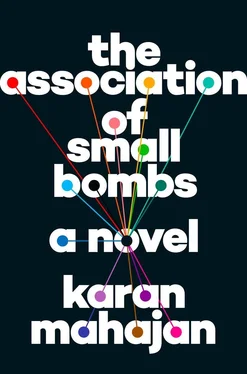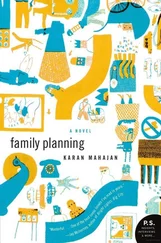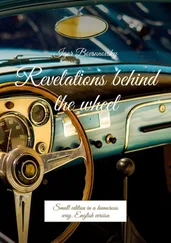At the cremation, which occurred on the stepped bank of a Yamuna River canal speckled with a thousand ripply eyes of oil, tendrils of overgrown hypochondriac plants thrust deep into the medicinal murk, Mr. Khurana noticed that outside the ring of burning flesh and wood, little snotty children ran naked playing with upright rubber tires. Behind them a cow was dreadlocked in ropes and eating ash and the wild village children kicked it in the gut. He shouldn’t have, but in the middle of the final prayers Mr. Khurana stepped out and shouted, shooing, the entire funeral party dropping back from the wavy black carpet of fire shadow. The children, not his, just looked at him and with beautiful synchronicity dove headfirst into the water, the rubber tires bobbing behind them, but the cow eyed him with muckraking glee and put its long wet tongue into the earth. The prayers continued but a tremor was evident: if the chanting had sounded before like the low buzzing of bees, the vocal swarm had now cleared and thinned as if to accommodate the linger of a gunshot. The exhilaration of Mr. Khurana’s grief gave way to the simple fact that he was a person, naked in his actions, and that as a person he was condemned to feel shame. He felt eyes rebuking him with sudden blinks between solemn verses. He stopped thinking of his two boys as they burned away before him in a flame that combed the air with its spikes of heat and sudden bone crack of bark. More ash for the cow.
“Where are the boys?” Vikas Khurana asked. He was with his wife in his flat. The sun was setting, oiling the trees outside with light. The Khuranas lived — unusually, for a couple at the end of the twentieth century in upper-middle-class Delhi — in a joint family compound, though even this compound, which spanned half an acre of Maharani Bagh, was joint only in name: the three buildings had been diced into six flats, and the common kitchen, once anchored by the grandparents, was now a formal space, reopened only for communal occasions like Diwali or Rakhi. The family members saw each other as often as people do in apartment complexes.
When Deepa gave him the answer he expected — they were probably stuck in traffic — he glanced from the first-floor window through the folds and dust-filled crevices of the complex for signs of life. Nothing. Only Nepali servants lingering in the street with milk thermoses, dusk swirling around their crew-cut hair in the form of clouds of mosquitoes, and closer, pigeons shaking dirt off their wings, the shades on their necks — greens, magentas, yellows — stabbing in their brilliance. “Every year the mosquitoes come earlier,” Vikas said. “Apparently, Vibha’s son has malaria.”
“That’s because the Yamuna is oxygen dead,” Deepa said. She was icing a cake on the dining table, dripping white frosting through a cone of paper in her hand. A talented baker, she sold her cakes to kitty parties and birthdays for extra income.
Vikas changed into shorts and went out for a walk. He’d become fidgety waiting for the boys, who’d left a while ago in an auto with their cricketing friend Mansoor. After dropping Mansoor at South Ex, they were supposed to reverse course and stop at Lajpat Nagar to pick up the TV, enthroned on the electrician’s worktable after springing a mysterious green line across the screen. The TV had been out for repair for days, but Vikas had made no move to fetch it till today, when a day-night South Africa — Australia cricket match was scheduled.
He was an art filmmaker and did not keep regular hours; he could arrange his day around cricket matches if he wished.
It was a bit early for a walk. Most of the regulars were indoors, or at work; the sun burned up the roads despite the ashoka and neem and peepul trees plugging up the sky on both sides; and the sounds of traffic on Mathura Road conveyed speed and impatience, with honks traveling down the avenue like javelins thrown by ghosts.
Vikas walked pensively, uncomfortably, dismayed by the imperfection of the circumstances and his own mood. Soon, though, he fell into a rhythm and was making rounds of the park where the boys played most evenings. It was there, at the corner of that park, near a small temple abutting a garbage dump, that another walker, Mr. Monga, came up to him.
“Did you hear? There’s been a blast in Lajpat Nagar,” Monga said, speaking to Vikas but looking down the serene colony street for other walkers, his eyes vivid with gossip and excitement. “Why now, in this hot month, I don’t know,” he said, casting another glance down the alley and twitching his shoulders, shoulders that seemed deformed under the big-pored cotton of his white polo shirt. “Could be related to the elections.” The Hindu nationalist BJP had come to power six days earlier, with a tight majority.
When did it happen? is all Vikas wanted to know.
“Just now, yaar. I heard because my missus had gone to Bon Ton and she was coming through Ashram and traffic was very bad, so she asked a DTC guy.”
The rest of it unfolded at high speed. Vikas bolted from the periphery of the park, raced down the avenues — aware, as he ran, of the terrible flaws in the sidewalk, the tilts and burps in the blistered tiles — and got into his car and drove off. He told his wife nothing — she was busy upstairs with an order for a silver anniversary and he didn’t wish to panic her. But because he had shared his fears with neither his wife nor Mr. Monga, whom he had batted off with an excuse, he was more fearful than he otherwise would have been.
Strangely, though, as he drove, his mind was not on his boys but on their friend Mansoor Ahmed, who was the same age as the older one, Tushar. Vikas would never be able to live it down if something happened to Mansoor, if he died on his watch — Mansoor, who had been born to the Ahmeds after seven years of infertility and whom they protected with all their parental paranoia, only letting him go out to visit the Khuranas, whom they counted among their best (and only Hindu) friends. Vikas, for this reason, had a strong bond with the boy — stronger, at times, than the one he shared with his own sons; he relished Mansoor’s intelligence and sensitivity, found him more receptive to the arts and to listening, and always used him as a cudgel with which to shame his sons (Vikas had always been self-hating when it came to family). When Mansoor came over, he tried to give him a taste of the freedom he was denied by his parents. Sending him with the boys, instead of dropping him off personally, had been his idea.
Monga was right, though — traffic was horrible, and almost out of petrol, the car swung uneasily through the rush hour streets, its needle shaking near E. “Shit, shit, shit,” Vikas muttered, the panic in his heart displaced by the unperturbed pace of traffic.
________
The boys had left together in an auto, flagging one down from Mathura Road even as the chaperoning servant kept telling them, “Move back! Your mother’s going to scold you!”
“I’ll scold you ,” said Tushar, brimming with the manic energy that consumed him at dusk, the city with its ferocious horns and traffic and tired efflorescence not exactly helping matters.
But when the boys got into the auto, squeezing their small brown legs together, they were quiet and serious as they expected auto riders to be. They watched the traffic from the open sides of the vehicle, and occasionally pointed out fancy cars to each other. “Oye, the new model of the Rover Montego’s come out?” Nakul, the younger one, asked.
“They make them in Oxford,” Tushar said.
“Where are we going, can you please tell me?” the alcohol-scented auto driver asked.
Читать дальше












